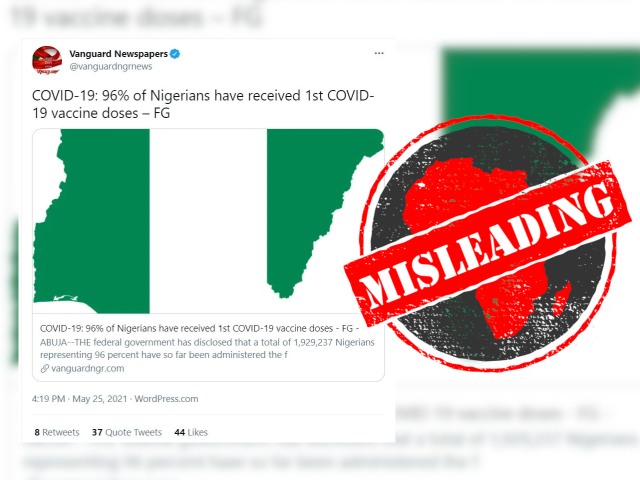Microsoft founder Bill Gates is one of the world’s wealthiest men. But is he set to invest “another” US$5 billion – about R71 billion – in South Africa?
So says the headline of an article on the website Couple of Happiness: “Bill Gates Revealed Another $5 billions Investment in South Africa”. The article was posted to Facebook, where a user flagged it as false.
While the article itself is genuine, the headline is fake.

The article is actually about the Bill and Melinda Gates Foundation’s annual Goalkeepers report, which measures progress towards achieving UN poverty-reducing goals by 2030. (Disclosure: The Bill and Melinda Gates Foundation is one of Africa Check’s funders, providing 18% of our income in 2018.)
At the release of the report Gates did touch on investment, telling journalists “the world should help Africa invest in its people as the continent confronts a demographic boom”. This “simple idea” would help reduce poverty, he said.
Nowhere in the article is a monetary value given, or South Africa mentioned.
The original article was written by AFP in September 2018. It was published on the Couple of Happiness website under the byline of one “Kenneth P Fluharty”.
The fake headline was presumably used to attract more clicks to the site.
The website does not have an “about” tab or any other information about its activity.
It has previously posted articles under clickbait headlines such as “Same-sex penguin couple is madly in love and has adopted an egg” and “Technology To Bring Dead Back To Life Is Already In Progress”. – Africa Check (20/02/19)
So says the headline of an article on the website Couple of Happiness: “Bill Gates Revealed Another $5 billions Investment in South Africa”. The article was posted to Facebook, where a user flagged it as false.
While the article itself is genuine, the headline is fake.

The article is actually about the Bill and Melinda Gates Foundation’s annual Goalkeepers report, which measures progress towards achieving UN poverty-reducing goals by 2030. (Disclosure: The Bill and Melinda Gates Foundation is one of Africa Check’s funders, providing 18% of our income in 2018.)
At the release of the report Gates did touch on investment, telling journalists “the world should help Africa invest in its people as the continent confronts a demographic boom”. This “simple idea” would help reduce poverty, he said.
Nowhere in the article is a monetary value given, or South Africa mentioned.
Fake headline used as clickbait
The original article was written by AFP in September 2018. It was published on the Couple of Happiness website under the byline of one “Kenneth P Fluharty”.
The fake headline was presumably used to attract more clicks to the site.
The website does not have an “about” tab or any other information about its activity.
It has previously posted articles under clickbait headlines such as “Same-sex penguin couple is madly in love and has adopted an egg” and “Technology To Bring Dead Back To Life Is Already In Progress”. – Africa Check (20/02/19)
Republish our content for free
For publishers: what to do if your post is rated false
A fact-checker has rated your Facebook or Instagram post as “false”, “altered”, “partly false” or “missing context”. This could have serious consequences. What do you do?
Click on our guide for the steps you should follow.
Publishers guideAfrica Check teams up with Facebook
Africa Check is a partner in Meta's third-party fact-checking programme to help stop the spread of false information on social media.
The content we rate as “false” will be downgraded on Facebook and Instagram. This means fewer people will see it.
You can also help identify false information on Facebook. This guide explains how.




Add new comment